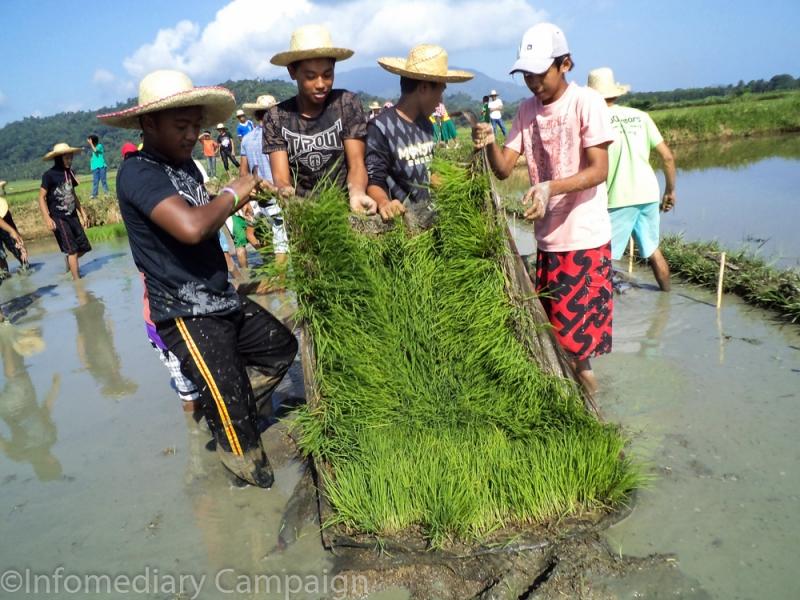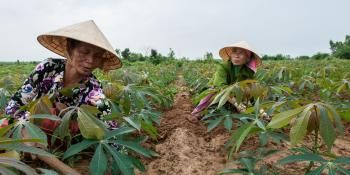Counting on public school teachers to promote climate-smart agriculture

With sense of urgency, the general public needs to be informed and educated of the impacts of climate change and how they could adapt and mitigate.
With the inadequacy of agricultural extension workers in the Philippines, about 13,000 serving more than 2,000,000 farmers, it is crucial to develop alternative ways of delivering climate-smart agriculture (CSA) information to the farmers.
At present, the Infomediary Team is hosting three batches of national training program on “Climate-Smart Agriculture and Rice Production.” Each batch of trainees gathers about 30 teachers from technical-vocational schools across the country at the PhilRice Central Experiment Station in Nueva Ecija, Central Luzon, Philippines.The CGIAR Research Program on Climate Change, Agriculture, and Food Security (CCAFS) Southeast Asia (CCAFS SEA), in collaboration with the Philippine Rice Research Institute (PhilRice) and the Philippines Department of Education, are working on mobilizing high school students nationwide to serve as CSA information providers in their respective communities under the Infomediary Campaign initiative.
To prepare the students as channels of information or infomediary, their teachers are primed to teach various climate change and food security concepts and issues. Hence, central to the Infomediary Campaign, which started in 2014, is the training of high school teachers in about 100 schools to become force multipliers or ancillaries in disseminating climate change information among their students.
This year, the focus is to equip teachers with knowledge on how to manage the impacts of climate change. The teachers are given ready-to-teach modules on climate change, adaptation and mitigation schemes. The modules come with a teaching guide that provides a detailed, step-by-step procedure for classroom instruction.
In the training program, the teachers are taught about how to produce their own high-quality seeds and the knowledge gained is passed on to the students and to farmers in their area. PhilRice has over 100 ha seed production and experiment area which showcases some of the most popular rice varieties grouped according to the recommended ecosystem. The climate change-ready rice varieties recommended by the National Seed Industry Council are introduced to the trainees.
As part of their training the teachers are taken to the farm of a successful farmer who practices diversified farming to illustrate optimal use of land. Another important component of the training is the agro-ecosystems analysis where the teachers are taught to analyze the many dynamics in the rice field such as counting pest population, measuring leaf indices, and making inferences on the possibility of disease occurrence.
These are the vast range of topics that the teachers are expected to learn and echo to their students. In case the students have questions or seek for clarifications on the topics discussed, several mechanisms are in place to address these. The PhilRice Text Center (PTC), an SMS facility, and the PinoyRice Knowledge Bank website offer information on rice and climate change. The PTC and PinoyRice were developed by the Open Academy for Philippine Agriculture.
The training program includes a mix of practical experience, brain ticklers, lectures and field tours. It is hoped that investing on the force multipliers, the teachers, will increase the understanding of the broader public about CSA and it will empower local communities.
Visit the Infomediary Campaign website
Video: Youth on Climate Change
Jaime A. Manalo IV is the head of the Development Communication Division of the Philippine Rice Research Institute and team lead of the Infomediary Campaign.




